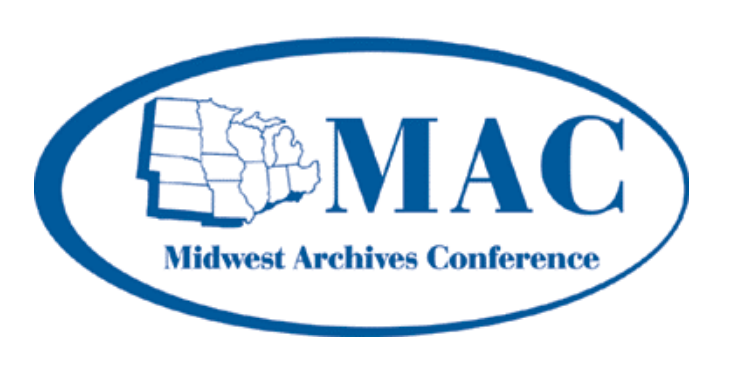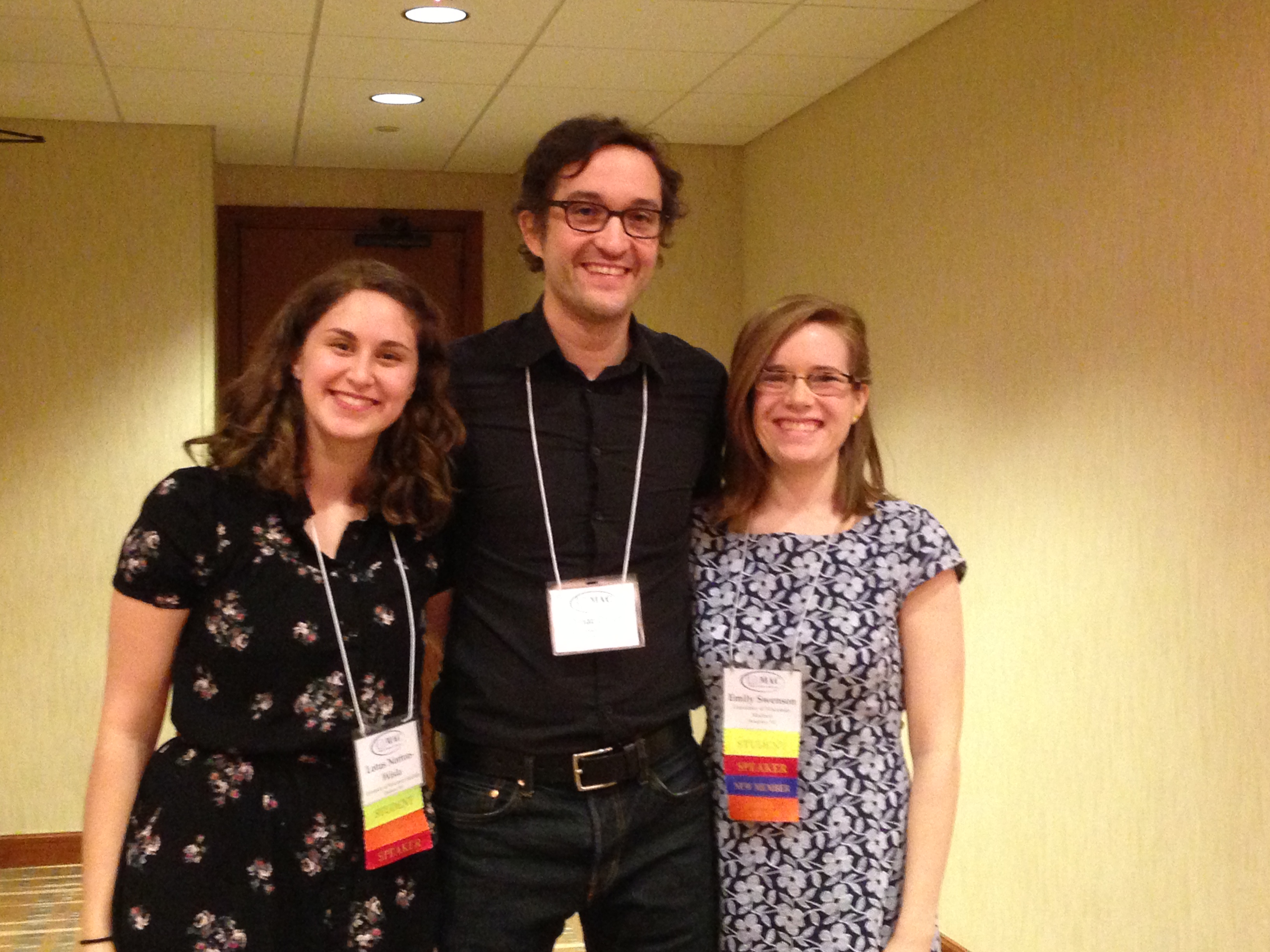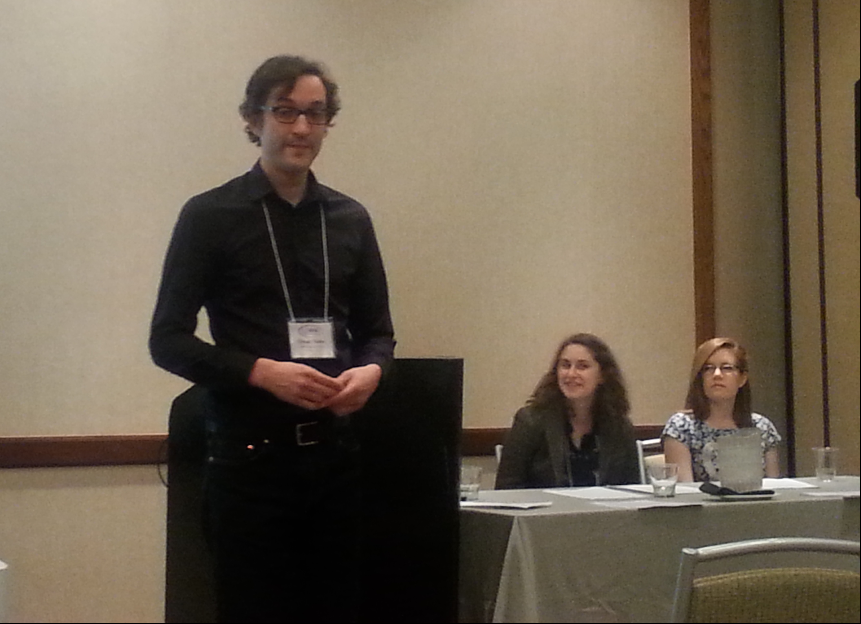This year, several past and present students from the Tribal Libraries, Archives, and Museums class had the opportunity to attend the Midwest Archives Conference (MAC). They were part of a group of nearly twenty current students from UW-Madison’s Society of American Archivists – Student Chapter (SAA-SC) who traveled to Kansas City, MO, for the conference. MAC 2014 was held April 24-26, and according to the MAC website:
The Midwest Archives Conference is the nation’s largest regional professional association for archivists. Founded in 1972, MAC now has approximately one thousand individual members. MAC’s 177 institutional members include a variety of corporate, government, religious, and university archives, as well as historical societies and other manuscripts repositories and special collections. The MAC region is the 13 heartland states: Illinois, Indiana, Iowa, Kansas, Kentucky, Michigan, Minnesota, Missouri, Nebraska, North Dakota, South Dakota, Ohio, and Wisconsin. However, MAC has individual and institutional members from over 30 other states and five other nations, and more are always welcome.
 UW-Madison has good reason to be proud of its SAA-SC members this year because besides accounting ten of the fourteen posters presented during the Graduate Student Poster Sessions, one of the discussion panels at MAC was devoted to the TLAM Project.
UW-Madison has good reason to be proud of its SAA-SC members this year because besides accounting ten of the fourteen posters presented during the Graduate Student Poster Sessions, one of the discussion panels at MAC was devoted to the TLAM Project.
The panel consisted of Omar Poler, long-time instructor of the TLAM class; Lotus Norton-Wisla, a student in the Spring 2013 TLAM class; and Emily Swenson, a current TLAM student. The MAC Conference Program described their panel thus:
The Tribal Libraries, Archives, and Museums Project: Bringing LIS Students and American Indian Communities Together to Learn through Sharing and Community
The Tribal Libraries, Archives, and Museums (TLAM) Project is a convergence of learning and community building between tribal institutions and the University of Wisconsin–Madison School of Library and Information Studies (SLIS). Our session will introduce the course and practicum, which provide unique experiential training for future archival professionals to better understand American Indian issues. The TLAM Project (including the related IMLS-funded Convening Great Lakes Culture Keepers region institute) allows students to engage with underrepresented areas of our field and develop mutually beneficial relationships with tribal cultural heritage professionals.

Despite being scheduled for 8:30 am, the panel was quite well attended, attesting to the genuine interest that archivists have in working with tribal communities. Omar began by greeting the attendees in the Ojibwe language and explained the purpose of the TLAM Project as well as its origin and development. He also spoke of the recent Convening Great Lakes Culture Keepers conference.
Lotus then continued by discussing the Spring 2013 class and her practicum experience at the Menomonee Nation during the past summer. She also presented a short video made by Sara Summers-Luedtke, the former Assistant Director of the Oneida Nation Museum.
Sara had originally been slated to be one of the presenters at this panel, but unfortunately, she was unable to attend. Instead, she made a video in which she spoke about the rewards and challenges of coordinating interns and volunteers. Finally, Emily closed the presentation by describing the four current service-learning projects being carried out by the TLAM class.

The TLAM discussion panel was a rousing success. After the presentation, there was a very spirited Q & A session in which many people asked questions about how TLAM works and how they could go about engaging with indigenous communities.
Attendees were also invited to take a copy of the class syllabus, and several people were observed reading it during other panels at MAC. Clearly, this is a topic about which archivists are interested in learning more.
Social justice and underrepresented groups are widely discussed subjects in the archives field right now, and the TLAM Project is a tangible example of an attempt to bring the Native voice back into the information profession. It provides valuable real-world experience for archives students and a model for future developments in the archival profession.
-Eric Tollefson
